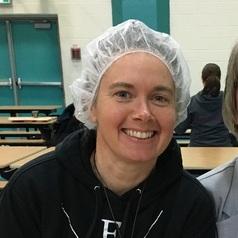
Emily Doyle
Postdoctoral Fellow, School of Science and the Environment, Grenfell campus, Memorial University of Newfoundland
Emily Doyle is a postdoctoral fellow at Grenfell campus of Memorial University of NL. Under the supervision of Dr. Vodden at the Rural Resilience Lab, Emily’s main focus is on coordinating the PhiLab Atlantic Hub. PhiLab is a SSHRC funded partnership research project focused on investigating the social and environmental impact and engagement of philanthropy. Emily is currently engaged in research about the interaction of food systems and philanthropy working in partnership with the Three Rivers Mi’kmaq Band. Other areas of current research include investigating the Living Lab as an innovative practice, investigating promising models of school food programs and understanding health systems and accountability.
Less ![]()

Emily Farran
Professor of Cognitive Development, University of Surrey
Emily Farran is a Professor of Cognitive Development at the University of Surrey and Director of the Cognition Genes and Developmental Variability lab (CoGDeV Lab). She is interested in the development of visual and spatial cognition in both typical and atypical populations. Her most recent research focuses on: the relationship between spatial thinking and Science, Technology, Engineering and Maths (STEM) in primary school age children; and large scale spatial ability (navigation) in atypical populations such as Williams syndrome and Down syndrome. She is also an advocate for open research. Her efforts formed an integral part to the University of Surrey joining the UK Reproducibility Network in December 2019. This was coupled with her appointment as Academic Lead for Research Integrity and Culture in November 2019.
Less ![]()
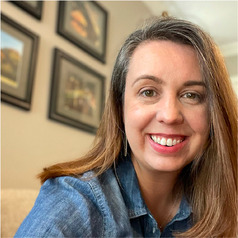
Emily Farris
Associate Professor of Political Science, Texas Christian University
Emily Farris (M.A., Ph.D. Brown University; B.A. Furman University) is an associate professor in Political Science at TCU, who currently completing a book on the power of U.S. sheriffs.
Less ![]()

Emily Finer
Senior Lecturer, School of Modern Languages, University of St Andrews
I work on transnational and multilingual interactions between English, Polish, Ukrainian, Yiddish and Russian language cultures. In addition to teaching in the Department of Russian, I was the founding convenor of the degree in Comparative Literature which brings together all the languages and cultures taught in the School of Modern Languages at St Andrews. I currently hold a St Andrews / Emory Collaborative Grant for a project researching multilingual children’s print culture of Ukraine and am joint PI on the Ostroh Academy/University of St Andrews Partnership for Advancing the Public Humanities funded by UUKi.
My second research focus is on intersections between global science fiction, exoplanet science, and space policy. I am PI for a STAIRS grant ‘Forecasting Reproduction in Space’ which asks whether science fiction and scientific papers address similar issues around reproduction and agency and investigates the techniques used in literary and scientific writing to communicate complex ethical issues. This follows my earlier research and monograph on Viktor Shklovskii, a literary theorist who aimed to make literary analysis more scientific. I am Co-Director of an interdisciplinary research centre: St Andrews Centre for Exoplanet Science and content advisor to the exhibition Alien Worlds at the Wardlaw Museum, St Andrews.
I have been an interviewee and researcher on The Cultural Front (BBC Radio 4), The Sunday Feature (BBC Radio 3), the Red Mars Series (BBC Radio 4), and In Our Time with Melvyn Bragg (BBC Radio 4).
Less ![]()
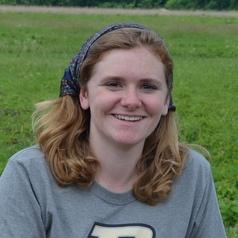
Emily Fletcher
Ph.D. Candidate in Archaeology, Purdue University
Emily Fletcher is a digital archaeologist interested in software development, data management, decolonizing archaeology, and technological innovation. She attended Kalamazoo College for her undergraduate studies, where people are often surprised to learn she double majored in computer science and history. She worked as a software developer for a year before coming to Purdue in 2019 to pursue a graduate degree.
In Emily's research, she writes software to bring new life to archaeological legacy data (records from previous research). She specifically focuses on the Gulkana Site, an important but understudied Native Alaskan heritage site where people created a variety of copper tools roughly a thousand years ago. She hopes that her software can make data about this site easier for archaeologists and descendants to interact with.
Less ![]()
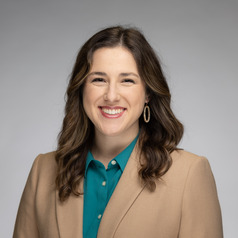
Emily Frazier
Assistant Professor of Human Geography and Sustainability, Missouri State University
Emily Frazier is a human geographer studying immigrant incorporation, refugee resettlement, and faith-based groups in the U.S. She received her PhD in Geography from the University of Tennessee, Knoxville, and is currently an Assistant Professor at Missouri State University. She is currently a Fellow of the Religion, Spirituality, and Democratic Renewal program of The Social Science Research Council, and her research has also been supported by a Pipeline Early Career Scholar Award from the Russell Sage Foundation.
Less ![]()
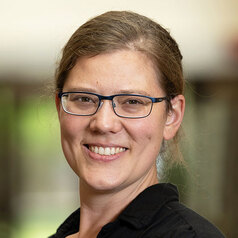
Emily Grubert
Associate Professor of Sustainable Energy Policy, University of Notre Dame
Emily Grubert is a civil engineer and environmental sociologist who studies how we can make better decisions about large infrastructure systems, particularly related to justice-centering decarbonization of the US energy system. Specifically, she studies life cycle socioenvironmental impacts associated with future policy and infrastructure and how community and societal priorities can be better incorporated into multicriteria policy and project decisions. Her major methods include scenario analysis, life cycle assessment, survey and interview research, and text mining.
Less ![]()
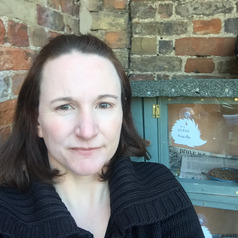
Emily Harper
PhD Candidate, School of Animal, Rural & Environmental Sciences, Nottingham Trent University
Emily Harper is an ecologist specialising in hedgehog health, behaviour and stress. Her research focuses on parasites and their relationships with their host, the hedgehog. She is interested in the way parasites can impact health, change behaviour and the interactions between parasites and stress.
Harper is a part-time PhD candidate at Nottingham Trent University after completing a MSc in Applied Ecology at the University of Gloucestershire, where she continues to guest lectures on wildlife rehabilitation ethics.
She is the manager at Wild Hogs Hedgehog Rescue, a well established hedgehog charity that has been running since 2016. Wild Hogs Hedgehog Rescue admits over 500 hedgehogs into rehabilitation annually and Harper is dedicated to rescuing hedgehogs and improving the care hedgehogs receive in rehabilitation.
Less ![]()
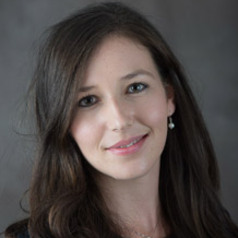
Emily Hauser
Senior Lecturer in Classics, University of Exeter
My research centres on the intersection between gender and poetics in the ancient world (particularly ancient Greek poetry) and its contemporary reception. Broadly speaking, there are three major strands to my work:
Authorship and gender in antiquity: My current research focuses on figurations of authorship in Greek poetry, particularly as they relate to gender. I'm fascinated by the self-portrayal of female authors like Sappho within the constraints of a gendered language, and how that language was both policed and problematised by male and female authors alike. I have published two articles based on this research. These form the basis for my current book, Authoress: Gendering Poets in Ancient Greece (forthcoming with Princeton University Press).
Women in Homeric epic: I am particularly interested in the relationship between women in Homeric epic and literary tropes, attempting to unpack the interconnection between women and poetry in Homer. I have worked on Penelope and the teleology of the Odyssey (an article on this topic was published in Helios in 2020), and (together with Lilah Grace Canevaro) co-organised a workshop in April 2018, entitled ‘New Approaches to Gender in Ancient Literature’. I also have a book under contract with Liverpool University Press on Women in Homer, which will be aimed at undergraduates interested in looking further into Homer's women and their reception.
Classical reception in contemporary women’s writing: Although I am interested in many areas of classical reception, my main interest is in the reception of female figures from classical literature by contemporary women writers. I look at women’s writing from 1970 on, studying authors and poets from Margaret Atwood to Adrienne Rich, Ursula Le Guin, Louise Glück, Rita Dove and Carol Ann Duffy. A recent article in TAPA (2019) looks at the relationship between Classics and creativity, with a particular focus on women's writing.
I am also an author of historical fiction, and have published three historical novels reworking the women of classical myth with Penguin Random House: For the Most Beautiful, For the Winner and For the Immortal. I am particularly passionate about outreach and have given talks at school and university Classics across the UK, and my work has been covered in the Times and Guardian, with appearances on local and national BBC Radio.
You can find out more about my research and writing on my website, www.emilyhauser.com.
Less ![]()

Emily Ireland
Lecturer in Law, University of Liverpool
Emily is a lecturer in Law at the University of Liverpool. Emily’s research interests are in eighteenth and nineteenth-century legal history, particularly socio-legal and feminist histories of the criminal law, equity, and family law. She is interested in how subordinated peoples have negotiated the law over time.
Emily is the author of a growing number of publications on eighteenth and nineteenth-century women and the law. As part of her work on the Australian Research Council funded ‘A New History of the Law in Post-Revolutionary England’ project (a collaboration between the Universities of Adelaide and Liverpool), she is currently drafting chapters on gender and the law and legal personhood for the Oxford History of the Laws: Volume IX.
As part of her commitment to expanding the reach and inclusivity of legal history, Emily is co-director of Selden's Sister, a network for women in legal history, and the Northern Legal History Group, a research initiative based in the North West of England.
Less ![]()
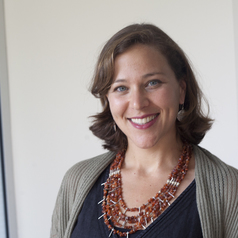
Emily J. Blanchard
Associate Professor, Dartmouth College
Emily Blanchard is an Associate Professor (Economics) at the Tuck School of Business at Dartmouth College. Her research centers on the economics and policy implications of globalization.
Less ![]()

Emily Katz
Associate Professor of Ancient Greek Philosophy, Michigan State University
My primary research interests are ancient Greek mathematics and metaphysics (especially Aristotle’s metaphysics, natural science, and philosophy of mathematics), as well as the question of how much we can understand about Aristotle’s predecessors and contemporaries from his discussions of their views. I am available to work with incoming graduate students as a committee member and/or teaching mentor.
Less ![]()
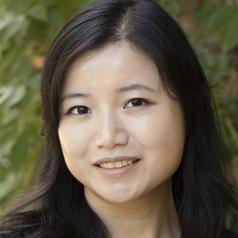
Emily Lau
Staff Attorney, State Democracy Research Initiative, University of Wisconsin-Madison
Emily Lau is a Staff Attorney with the State Democracy Research Initiative.
She joins the Initiative after earning her law degree from Yale Law School. While in law school, Emily was an intern at the San Francisco City Attorney's Office in the Complex and Affirmative Litigation Team and a student in the San Francisco Affirmative Litigation Project clinic, helping the San Francisco City Attorney's Office litigate cases under the California Unfair Competition Law. She was also an editor on the Yale Journal of Law and Feminism and a member of the First Generation Professionals board.
Before law school, Emily worked in the California Governor's Office in the Brown and Newsom administrations.
Less ![]()
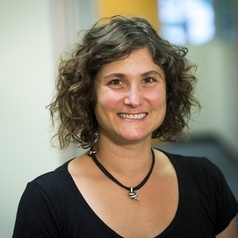
Emily Lenton
Research officer, La Trobe University
Emily Lenton is a Research and Project Officer at the Australian Research Centre in Sex, Health and Society, La Trobe University, working on the design and implementation of qualitative projects that seek to improve the lives of people affected by blood-borne viruses and people who use drugs.
Less ![]()
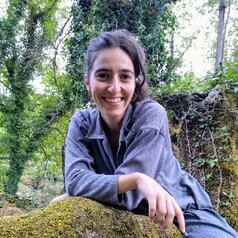
Emily Magkourilou
PhD Candidate in Soil Ecology, University of Sheffield
I am currently a PhD Researcher based at The University of Sheffield and supervised by Professor Katie Field, Professor Urwin (University of Leeds) and Professor Tim Daniell.
My work is focused around understanding the role of arbuscular mycorrhizal fungal networks in modulating symbioses between competing root symbionts.
Less ![]()
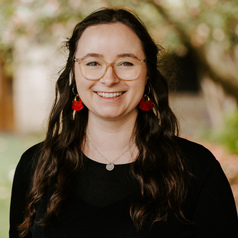
Emily McColl-Gausden
Research fellow, The University of Melbourne
Emily McColl-Gausden is an ecologist working in the Quantitative and Applied Ecology Group in the School of Agriculture, Food and Ecosystem Sciences at the University of Melbourne.
Less ![]()
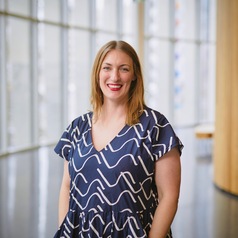
Emily O'Hara
Senior Lecturer, Spatial Design + Temporary Practices, Auckland University of Technology
Bachelor of Design (Spatial)
Masters of Art + Design
Doctor of Philosophy
I have worked at Auckland University of Technology in a variety of roles (both academic and professional) for the last eight years. The academic role constitutes teaching within the school of Art + Design in the Spatial Design Major, and in the Temporary Practices Minor. My creative led interdisciplinary research practice fluctuates between installation-as-performance, object, sculpture, photography and moving image. My work circulates around questions of language, silence and ineffability in relation to mourning, the maternal and otherness. A keen focus on temporality and extended duration underpins my spatial practice.
Less ![]()

Emily Reeve
Senior Research Fellow in the Centre for Medicine Use and Safety , Monash University
I am a Senior Research Fellow with the Centre for Medicine Use and Safety. I am currently funded by an NHMRC Investigator Grant (EL2: 2021-2025). I am also a qualified pharmacist with experience working as a clinical pharmacist in a large tertiary teaching hospital. I completed my PhD at the University of South Australia in 2014 and was awarded the medal from the School of Pharmacy and Medical Sciences for my thesis work. Following this I was a postdoctoral research associate at the University of Sydney with the NHMRC Cognitive Decline Partnership Centre. I also spent two months as a visiting researcher at the Brocher Foundation (Geneva, Switzerland) in 2014. I previously held an NHMRC-ARC Dementia Research Development Fellowship. The first two years of this fellowship were undertaken in Canada with the University of Sydney and the Department of Medicine at Dalhousie University, with the final two years completed at University of South Australia.
Less ![]()
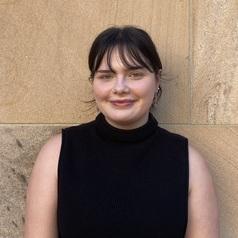
Emily Roberts
PhD Candidate, Psychology, Bond University
Emily Roberts is a PhD Candidate and Sessional Teaching Fellow at Bond University. She has expertise on and has taught foundational psychological theory, statistics and positive well-being courses.
Less ![]()

Emily Robinson
Post-Graduate Researcher and Food Education Manager, University of Guelph
I have a focus on research with impact-
In my Master of Science I researched barriers to reducing single-use plastics in restaurants. Other significant research I’ve done has focused on assessing the sustainability initiatives and barriers in SME restaurants, diving into the challenges of managing foodservice sustainability initiatives during the COVID-19 pandemic, the impact of food waste in institutional settings, and the effectiveness of sustainability education training for foodservice employees.
I am an experienced food educator-
Professionally, I have taught and developed materials for foodservice management and food science courses at a University faculty level.
In my most recent role have also managed the Anita Stewart Memorial Food Lab on the UofG campus, overseeing events and courses in the lab.
On a volunteer basis, I have developed and taught environmental outreach programs in local schools.
I have a solid industry foundation-
I have worked for local SME restaurants, as well as world-renowned brands such as Four Seasons and Relais & Chateau.
Recent Accolades-
Governor General Gold Medal Nominee
D.F. Forster Medal Magistrate Nominee
OMAFRA Highly Qualified Personnel Scholar
Kostuch Media Top 30 Under 30 in Canadian Hospitality
Less ![]()
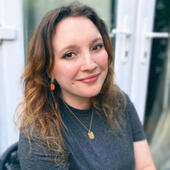
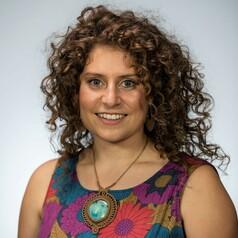
Emily Scicluna
Research Associate – Thylacine Integrated Genomic Restoration Research Laboratory, University of Melbourne, The University of Melbourne
Research Associate – Thylacine Integrated Genomic Restoration Research Laboratory (TIGRR), University of Melbourne
PhD candidate - La Trobe University. Major research focus of endangered species conservation (particularly carnivorous marsupials), behaviour, skull morphology, captive breeding and reintroduction, with a soft spot for fat-tailed dunnarts.
Less ![]()

Emily Spencer
PhD Candidate, Olfaction, Edinburgh Napier University
Emily Spencer is a PhD candidate at Edinburgh Napier University. Her primary research area is in sensory perception, and she is currently investigating the ways in which the olfactory senses can be retrained following a loss of the sense of smell. As part of her research, Emily has delivered olfactory training and testing to numerous people living with olfactory dysfunction.
After completing an undergraduate degree in Psychology with Sociology, Emily worked as a research assistant on various projects. These have included an investigation into the determinants of psychological distress in teenagers and young people affected by cancer, a study that focused on the link between socioeconomic factors and children’s cognitive development, and research into the effects of noise on creativity in the classroom.
Less ![]()
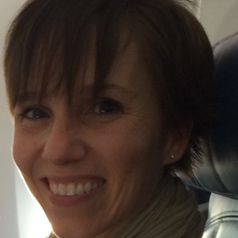
Emily Suski
Emily Suski is an Assistant Clinical Professor at Georgia State University College of Law. Previously, she has taught at the University of Virginia School of Law and Georgetown University Law Center. She teaches, researches, and writes in the area of education law, disability law, and family law.
Professor Suski received her J.D., M.S.W., and B.A. from the University of North Carolina at Chapel Hill. She received her LL.M. from Georgetown University Law Center.
Professor Suski's research and scholarship centers on the responsibilities and obligations of institutions, including schools and families, for children as well as people with disabilities. Her articles on these topics have been published in the Case Western Reserve Law Review, the Georgetown Journal of Poverty Law and Policy, the UCLA Women's Law Journal, and the Cleveland State Law Review.
Professor Suski was also a staff attorney with the JustChildren Program of the Legal Aid Justice Center in Charlottesville, Virginia.
Less ![]()
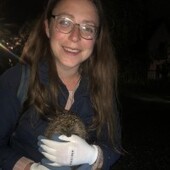


Emily Toth Martin
Emily Toth Martin is an Assistant Professor of Epidemiology at the University of Michigan School of Public Health. She currently teaches courses in molecular epidemiology and her laboratory researches the molecular detection of infectious diseases.
Less ![]()

Emily Wertans
PhD candidate, criminology, University of Leicester
Emily's research focuses on hate studies, prejudice and homelessness. Within this, Emily employs creative, non-traditional and trauma-informed research methods in order to support engagement with research in meaningful ways from seldom-heard voices and communities.
Less ![]()

Emily West
Professor of American History, University of Reading
I am a professor of American history at the University of Reading. I research and write on the history of slavery in the US South, especially the everyday lives of enslaved women.
Less ![]()
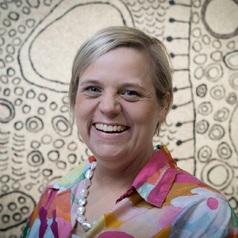
Emily A. Buddle
Research Fellow in Humanities, University of Adelaide
Bachelor of Agricultural Sciences with honours from the University of Adelaide. PhD in Human Society from the University of Adelaide. Graduate Certificate in Internet Communications from Curtin University. Experience in policy, advocacy and extension in the Australian agriculture sector.
Less ![]()
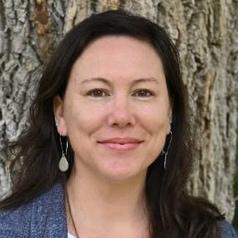
Emily Benton Hite
Assistant Professor of Sociology and Anthropology, Saint Louis University
I study the intersection of Indigenous rights and hydropower development within the context of climate governance. I conduct mixed-methods ethnographic research across multiple levels of governance: at international climate-related conferences (where policy is produced) and in local Indigenous communities (where policy is enacted). I am an Assistant Professor of Anthropology at Saint Louis University, where I am also a primary investigator at the Water Institute. I am the regional co-chair of the Global River Protection Coalition.
Less ![]()
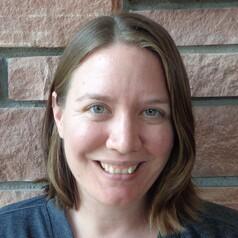
Emily C. Merz
Assistant Professor of Psychology, Colorado State University
Socioeconomic inequality leads to differences in children's experiences that impact their growth and development. I am a professor of psychology who runs the LEARN lab at Colorado State University. In the LEARN lab, we study how these experiences may impact the developing brain to better understand ways to support families and communities and reduce the effects of disadvantage. We investigate stress-related mechanisms through which socioeconomic disadvantage may impact the developing brain and in turn children's emotional and cognitive outcomes. We also focus on the positive and protective factors that promote resilience. The goal of our work is to contribute to reducing socioeconomic disparities in children's health and development. I received my PhD from the University of Pittsburgh; completed my clinical internship at the University of California, San Diego; and completed postdoctoral training at Columbia University.
Less ![]()
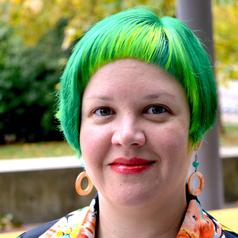
Emily J. Rugel
Honorary Adjunct Lecturer, Sydney Medical School, University of Sydney
Emily Rugel is an honorary adjunct lecturer at the University of Sydney, where her work explores health-promoting community design across the lifespan with the aim of developing evidence that can be embedded in sustainability plans and integrated in policies that advance equity. She received her doctorate from the University of British Columbia, where she developed a regional model of access to natural spaces and applied it to prescription and health-survey data to clarify pathways linking urban nature to social ties and mental health. In addition to a Ph.D., she holds a Master of Public Health and a B.A. in Journalism, but firmly believes in the acquisition of knowledge through chance encounters as well as scientific investigation.
Less ![]()
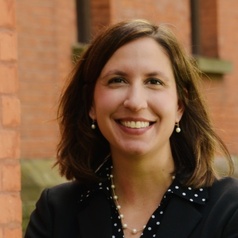
Emily N. Garbinsky
Associate Professor of Marketing, Cornell University
Emily N. Garbinsky is an associate professor of marketing and behavioral scientist at Cornell SC Johnson College of Business. She earned a PhD in marketing from Stanford University's Graduate School of Business in 2015 and a BS from Carnegie Mellon University in 2010, double majoring in psychology and decision science. She joined the Cornell faculty in July 2021, where she teaches Marketing Management as well as Brand Management at the MBA level.
Prior to joining Cornell, Garbinsky was on the faculty as an assistant professor of marketing at the University of Notre Dame's Mendoza College of Business, where she taught Principles of Marketing at the undergraduate level as well as Consumer Behavior at the MBA level. While there, she earned the James Dincolo Outstanding Undergraduate Professor Award in 2018, as well as the Prochaska Family Outstanding Teaching Award in 2021.
Her area of expertise is consumer financial well-being, focusing on three streams of research: 1) understanding how couples make financial decisions, 2) motivating individual consumers to make more fiscally responsible decisions, and 3) illuminating how people can maximize the happiness and enjoyment they derive from various consumption experiences. She has published articles in leading journals, such as the Journal of Consumer Research (JCR), the Journal of Marketing Research (JMR), the Journal of Marketing (JM), and the Journal of Consumer Psychology (JCP).
Garbinsky has won several prestigious research awards, including the 2017 BMO Wealth Management Best Paper Award, the 2019 JCP Best Paper Award by an Early Career Contributor, and the 2022 JCP Best Paper Award. In addition, she was selected as a 2021 Marketing Science Institute Young Scholar, an honor intended to identify likely leaders of the next generation of marketing academics, and she received the 2023 Society for Consumer Psychology Early Career Award, given to emerging scholars whose research shows promise in shaping the field of consumer psychology.
Less ![]()

Emily P. Courtney
Assistant Professor of Instruction, University of South Florida
Dr. Emily P. Courtney is an assistant professor and social psychologist at the University of South Florida. Her research program employs an existential perspective on contributors and impediments to health and well-being, with added considerations for individual, cultural, and gender-based differences. Primarily, Dr. Courtney uses terror management theory to investigate issues related to deadly disease, breast cancer, health communications, and value salience.
Less ![]()
- Market Data
















